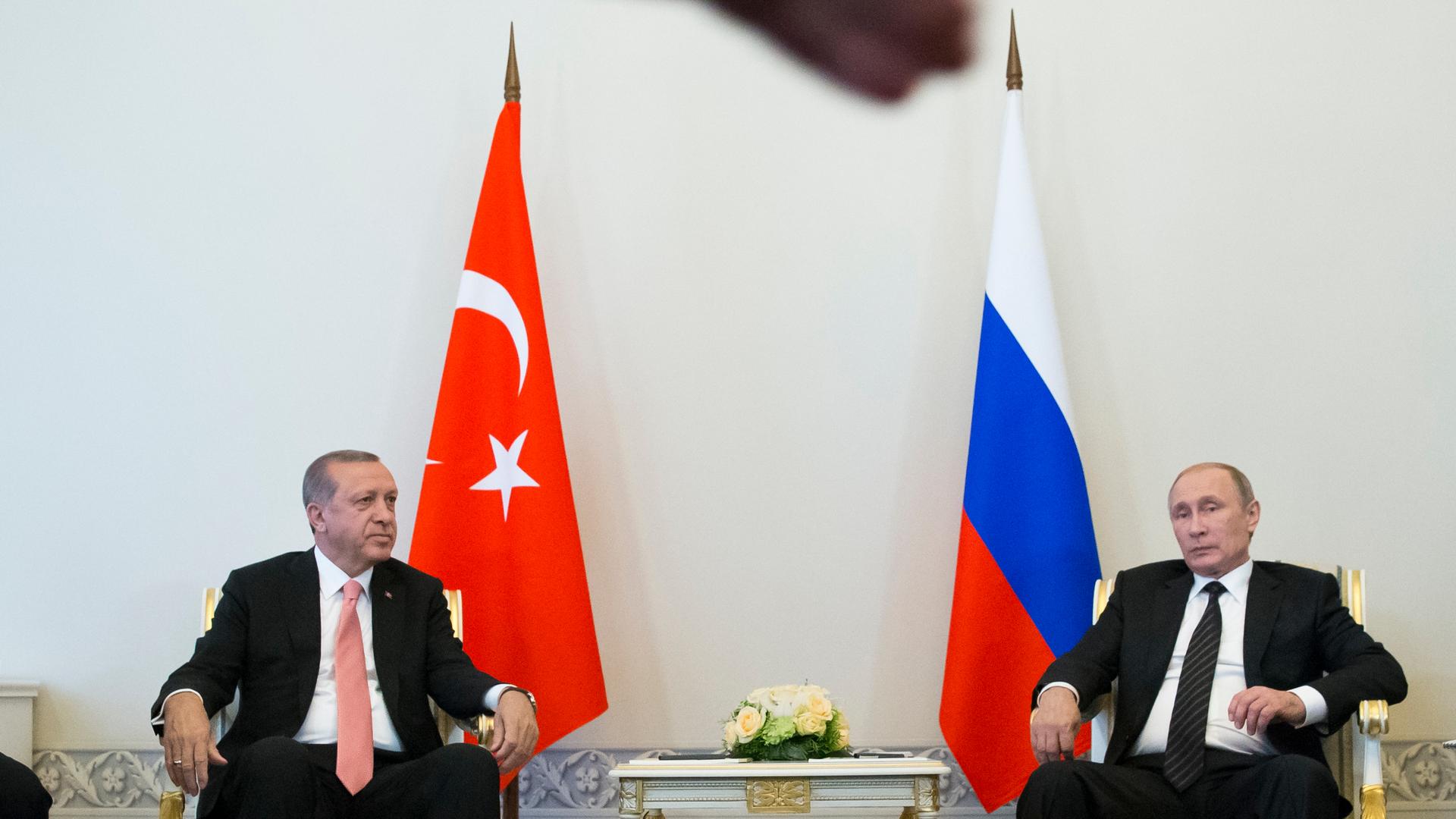MOSCOW – A recent report that Turkey might pass Russian modern S-400 antiaircraft systems to the US has been met with a high degree of scepticism in Moscow.
On Wednesday, Bloomberg news agency reported that Ankara has allegedly been considering an option to grant American defense companies access to the Russian know-how upon receiving the S-400 due in October 2019.
Meanwhile, Russian officials and experts question if the sensational news could be fake or even a deliberate provocation intended to undermine the $2.5-billion contract the Russian military hardware exporting company Rosoboronexport and Ankara inked last December.
The report by Bloomberg is “a provocation” aimed at disruption of the Russia-Turkey military-technical cooperation, the Rosoboronexport’s spokesman Vyacheslav Davidenko tells TRT World.
“We’ve got used to that sort of provocation long ago and pay scant attention to that. The contract over the S-400 delivery to Turkey has been implemented as intended and its cancellation has been out of the question,” he said.
The official added that even if Turkey purchases the US-made Patriot anti-aircraft systems, it would not affect the delivery of the S-400 agreed a year ago.
“We don’t worry that the American competitors could obtain our technology because there is a clause in the contract directly prohibiting any dissemination of the Russian know-how to any third party,” Davidenko stressed.
He added that the similar restrictions applied to all countries buying Russian military hardware, and Turkey was not an exception to the rule.
Passing military technology to a third party is “unheard” as it would be a blatant violation of international business basic norms, agrees an expert in the Moscow-base Center for Euro-Atlantic Security, Julia Kudryashova.
“If Turkey, or any other country, makes such a step, that would manifest its utter unreliability as a business partner. Taking into consideration that Russia-Turkey cooperation has been much wider than that particular deal, the game just isn’t worth the candle”, she said.
The expert expands on that saying that Moscow and Ankara undertake joint projects in the energy industry and they are also partners in the Astana process – this makes any sort of violation of trust like this from Turkey or Russia, highly unlikely.
“All things considering, it’ll be highly unreasonable for Ankara to cut down all those long-term plans by just one act of, effectively, state-sponsored espionage,” Kudryashova stressed.
“On the other hand, the United States will unlikely agree to exchange a piece of Russian missile technology, however classified, for dropping their support of the Syrian Kurds – the only bargain Ankara may consider as the game which (hypothetically) is worth the candle,” she concluded.
Even in sheer military terms, Turkey has no reason to jeopardise its contract with Rosoboronexport because the S-400 is more efficient and, what is no less important, more affordable than the Patriots.
Ankara paid Rosoboronexport $2.5 billion while the US missiles cost $3.5 billion.
This week, the Kremlin stated that it is up to Turkey to decide whether it wants to purchase the Patriots along with the S-400 or not. Whatever the decision is, it will not affect the S-400 contract, Moscow guaranteed.
The “false” report by Bloomberg looks like an attempt to make Russia reconsider its agreement with Turkey, said a deputy director of the Center of Modern Turkey Studies, Faridun Usmonov.
“One thing is to spare some technology which has already been widely circulating on the global market, and the other thing is to let the competitors and strategic opponents root about a piece of the most advanced military hardware. It’s even difficult to imagine what price Turkey may ask from the US for such an opportunity,” he said.










Discussion about this post